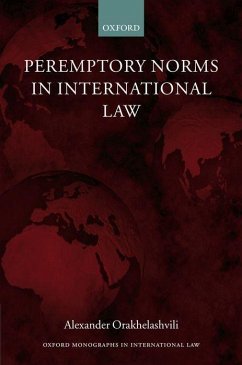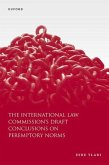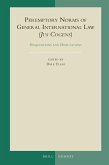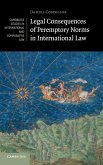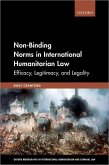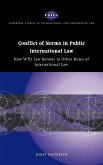This monograph analyses the questions raised by the legal effects of peremptory norms of international law (jus cogens). A comprehensive study of this problem has been lacking so far in international legal doctrine. Peremptory norms, although often criticised and even more often approached with sceptical nihilism, nevertheless attract growing doctrinal and practical attention and have increasing importance in determining the permissible limits on the action of State
and non-State actors in different areas. In view of this overriding impact on what might otherwise be instances of the law-making process, peremptory norms concern a constitutional aspect of international law.
Peremptory norms are non-derogable norms, and the concept of derogation is among the key concepts analysed here. Derogation from peremptory norms can be attempted in a wide variety of situations, but if peremptory norms are to operate as norms and not merely as aspirations they must generate consequences that are also peremptory. This effects-oriented character of peremptory norms is examined in a variety of fields.
Despite the growing relevance of peremptory norms in practice, doctrine has failed to treat the issue comprehensively and has often been limited to examining specific aspects of the problem, such as the impact of peremptory norms in the law of treaties.
This fresh effort to examine and explain the phenomenon of peremptory norms in key areas fills an important doctrinal gap through presenting in a systematic way the effects of peremptory norms and reappraising the significance of such effects, bearing in mind their overall nature. It also demonstrates that the hierarchical superiority of peremptory norms is not limited to the sphere of primary legal relations but becomes most crucially relevant after a specific peremptory norm is breached. A
norm's peremptory character is relevant not only for its substance but also for its consequences; peremptoriness consists primarily in the capacity to impact through its effects upon conflicting acts, situations and agreements.
Hinweis: Dieser Artikel kann nur an eine deutsche Lieferadresse ausgeliefert werden.
and non-State actors in different areas. In view of this overriding impact on what might otherwise be instances of the law-making process, peremptory norms concern a constitutional aspect of international law.
Peremptory norms are non-derogable norms, and the concept of derogation is among the key concepts analysed here. Derogation from peremptory norms can be attempted in a wide variety of situations, but if peremptory norms are to operate as norms and not merely as aspirations they must generate consequences that are also peremptory. This effects-oriented character of peremptory norms is examined in a variety of fields.
Despite the growing relevance of peremptory norms in practice, doctrine has failed to treat the issue comprehensively and has often been limited to examining specific aspects of the problem, such as the impact of peremptory norms in the law of treaties.
This fresh effort to examine and explain the phenomenon of peremptory norms in key areas fills an important doctrinal gap through presenting in a systematic way the effects of peremptory norms and reappraising the significance of such effects, bearing in mind their overall nature. It also demonstrates that the hierarchical superiority of peremptory norms is not limited to the sphere of primary legal relations but becomes most crucially relevant after a specific peremptory norm is breached. A
norm's peremptory character is relevant not only for its substance but also for its consequences; peremptoriness consists primarily in the capacity to impact through its effects upon conflicting acts, situations and agreements.
Hinweis: Dieser Artikel kann nur an eine deutsche Lieferadresse ausgeliefert werden.

